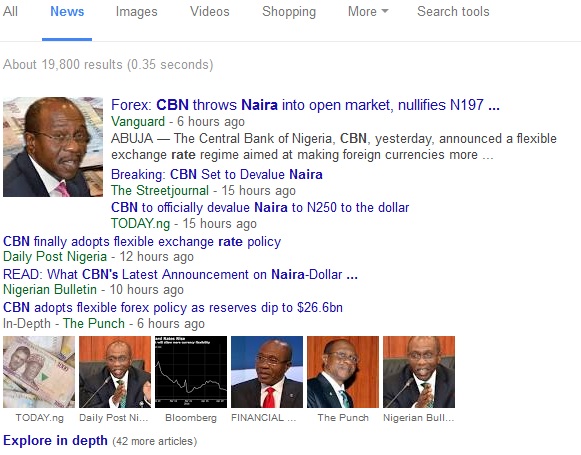(
Source)
Corruption
is universal, and Nigeria is a country universally acclaimed for
corruption. In spite of all the rules and laws prohibiting corrupt
practices, [corruption]
continues to thrive under weak legal, political and
administrative institutions; thereby exerting its penetrating influence
on ordinary Nigerians who are trapped in a moral maze as they attempt to
conduct their businesses. These Nigerians live their lives with all
honesty and integrity, but are too often
compelled to conform or be
crushed.
 |
| Lara Popoola, Nigerian lawyer |
In light of the deteriorating state of
common affairs, it is only appropriate that I should note the deep chasm
of distrust and rising cynicism of many Nigerians, about the
credibility of the President’s recent anti-corruption battle against
some senior government officials and their associates accused of
misappropriating public funds. A corruption battle which has been highly
speculative and seriously debilitated, by a legal justice system that
is lethargic, fundamentally flawed and unfit for purpose.
While I strongly affirm the absolute
necessity to prosecute and penalise these “giants” of corruption, I am
also mindful of the fact that the government is just one of two hands
that claps to the beat of corruption. Hence, we must also address the
contribution and mindset of individuals to the existence of corruption
in Nigeria, if we are going to wage a successful war against it. The
customary condemnation of government and public officials for corruption
often authorises many Nigerians to assume the position of spectators
and commentators, thereby mitigating their individual participation.
They remain oblivious of the fact that corruption does not discriminate.
Rather, it acquaints itself with people
of all social pedigrees, ages, tribes, gender and political parties. It
has no regard for level of education or even religious affiliations; for
we know many have audaciously testified about the supposed ‘blessings’
of their ill-gotten gains. It is no wonder, that as Nigeria continues to
pay its legislators high salaries and stupendous allowances while
majority of the population lives in abject poverty and darkness. There
is an increased pressure on people to become wealthy in order to
alleviate their poverty.
Consequently, the courage to adhere to
high standards of propriety erodes away and morality declines as
individuals ask “why should I be the sole custodian of honesty and
integrity?” After all, an employee who is not earning a living wage and
is owed accrued salaries, without the assurance that he will have a job
tomorrow, might choose to supplement his income with bribes and other
corrupt means.
It is worth noting, that it is not just
the man who receives the bribe that is corrupt, but also the man who
offers it. Corruptive norms are so widespread, it is sometimes
inconceivable for many to comprehend how employing families and friends
of the boss rather than the best candidates for jobs perpetuates
corruption. Or “rubbing hands” with custom officials to allow the
importation and exportation of banned items; or parents using unorthodox
means to ensure the admission of their children to higher institutions;
or assuming it is acceptable to be dishonest in business dealings just
because “that is how it is done here”.
It is because of this prevailing warped
mentality, that individuals must not undermine their susceptibility to
corruption, for at various stages of life, one might be compelled to
confess “I was corrupt”, “I am corrupt” or “I will be corrupt”. This is
simply because corruption corrupts.
It is relentless and progressive in its efforts. There
was once a time when corruption and development co-existed on a
tolerable scale, and Nigeria was able to reap immediate benefits from
its natural resources. Unfortunately, this is no longer the case. The
adverse impact of corruption on public and private life is obvious and
the country is confronted with a vicious cycle of lower investment and
growth, higher poverty and inequality, greater fiscal imbalance, and
weaker delivery of basic public services. How else does one rationalise
the 5th largest provider of crude oil in the world experiencing chronic fuel shortages?
In echo of the President, to conclude
that if Nigeria does not kill corruption, corruption will kill Nigeria,
is as certain as the theorems of Pythagoras. It will continue to claim
thousands of lives on poorly constructed roads, many more will lose
their lives in hospitals because of inadequate healthcare facilities.
The dreams of many young people will die because money meant for better
educational system has been diverted into private pockets and many
senior citizens will continue to suffer as they struggle to receive
their pensions. Finally, hope will perish when poverty gains a
stronghold and misery is intensified.
This is not an attempt to indict every
Nigerian of corruption – that would be an unwarranted blanket
criminalisation. Rather, my aim is to intrude the thoughts of
individuals who unconsciously or through blissful ignorance live their
lives without considering their responsibility for corruption and its
powerful influence on their day to day living, with the hope to reform
our approach to citizenship by asking “how corrupt am I?” and then
proceed to actively challenge questionable norms that are detrimental to
our development as a nation.
The writer of the above piece, Lara Popoola, is a Contracts Negotiator with a degree in Law and Masters in Financial
Regulations and Compliance. She enjoys reading and keeping up to date
with political and social issues in Nigeria.
Source:
Question For Every Nigerian… “How Corrupt Am I?”, published April 2016 on Bellanaija.com . As is often true of blog articles, the comments / reactions are varied and very interesting, for instance:
- This is thought provoking Lara crofty.
However, Our institutions and its machinery has been rigged to encourage
furtherance of corrupt practices in the country. For example, I have
being a victim of incomplete car registration. All the papers are well
documented, but were not fully updated into their system (as i later
found out). Hence on a particular instance, i was forced to part with
N20,000.00 or loose my car to a set of Custom officer whose
jurisdiction, or office is not known.
In such a case, if you stick to the law, honesty and due process, the
unmarked car(without engraving of any kind) would have been stolen by
the self-same people expected to protect it. or what do you reckon?
Meanwhile, Nigerians are not happy about David Cameron's recent
"fantastically corrupt" comment. Maybe we can change things?
Get
email updates.
Order
Big Girl and
Big Boy.










Getting your family member that job that (s)he isn’t qualified for is reducing unemployment, not nepotism or corruption.
Looking the other way while your line manager keeps N30 million out of a pool of N60 million meant as bonus for the entire team is doing “oga things” and God will take us there someday, not corruption or malpractice.
The LAMATA bus guys who overload buses and collect cash instead of selling you tickets is him “eating where he works” not corruption.
Senators asking you why should they take Coaster buses in lieu of going to the same place in a convoy of 20 cars is met with “God will help us” instead of the due outrage.
Housing “Agents” and court and registry officials collecting money they cannot issue receipts for is not seen as corruption.
How much did you pay for your drivers’ license? I bet not the normal price.
Is purchase of black market petrol legal?
How much did you pay for your passport?
How much did you pay for your PHCN meter? All this is to say….everything is warped. Institutions and even the simplest processes are so tainted by corruption, and nothing is done by the rule book anymore. Is it possible to go back to when things were as they should be? Or should we work towards creating a new normal?